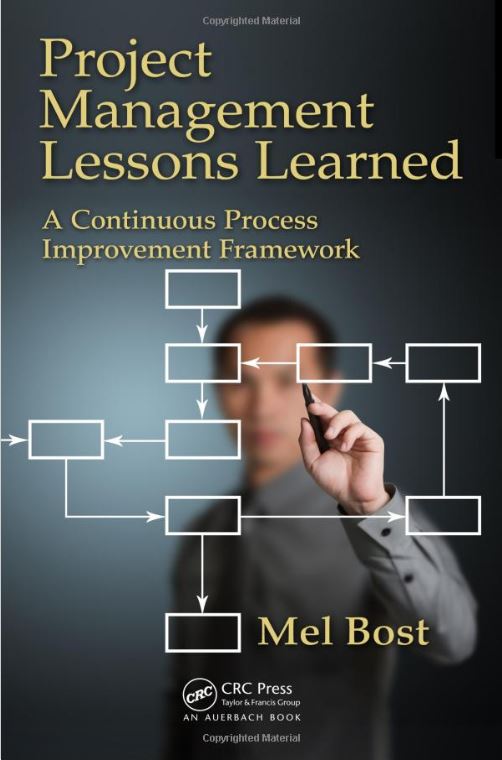The usual way that Program Management Offices (PMO) impact the firm’s strategy is through the execution of their “value proposition.” The execution of projects yields tangible, concrete assets; new processes; or principles of operation that guide the firm and add long term value to the shareholders. This blog post addresses how PMOs can more effectively deliver long term value and create a competitive advantage for the company.
In recent blog posts, I have discussed:
o “Best practices” in a project context
o “Reframing” project scenarios to ensure we are tackling the right problem with a project; and
o Design of PMO structures and functions using a “clean sheet of paper” approach
In this post, I want to leverage the insights of Professor C.K. Prahalad, a management and strategy guru who was recognized worldwide for his strategic intent, core competency and “bottom of the pyramid” theories, who died suddenly on April 16th. He was a university professor in the Ross School of Business at The University of Michigan (which was my MBA program).
In an April 2010 article/column entitled “Best Practices Get You Only So Far,” Prahalad discussed “innovation” in corporations from the perspective of looking beyond “best practices” to find what he termed “next practices,” those cutting edge initiatives that will lead to sustained competitive advantage in a changing world and marketplace.
This blog is in a sense a tribute to his contribution to strategy and management practice as I apply his principles to the Program Management Office (PMO).
Prahalad argued in this HBR column that today’s top management is too narrow in its focus to see “best practices” and must refocus their initiatives to uncover “next practices.”
He advocates that top management ask six questions in this search for “next practices:”
1. Is the problem widely recognized?
2. Does the problem affect other industries?
3. Are radical innovations needed to tackle the problem?
4. Can tackling the problem change the industry’s economics?
5. Will addressing this issue give us a fresh source of competitive advantage?
6. Would tackling this problem create a big opportunity for us?
In an earlier blog post, we cited the fact that Progress Energy–the utility that serves portions of North Carolina and Florida–had launched a Smart Grid Program Management Office (SGPMO).
Why did they do this?
The logical answer was that they anticipated that the interest in Smart Grid would result in major project initiatives, not only for their own organization but for other contributing and supporting organizations such as General Electric. Smart Grid would touch the lives of not only the electricity community but the customers and all stakeholders who have an interest in the application of SG technology. Smart Grid would be an “evolving” concept because “the more you learn about what you don’t know about it, the more inclined you are to change direction with regard to subsequent actions.”
In other words, the six questions that Prahalad proposed we ask of a “problem” facing an industry and its stakeholders would surely lead to competitive advantage for someone–why not Progress Energy?
So defining a Smart Grid Program Management Office (PMO) was a very “smart” thing to do when faced with all the unknowns about how Smart Grid would play out.
The same could be said of Apple creating a PMO for its financial organization, reporting to its CFO. The rapid product development that Apple has undertaken in recent years, including the recent introduction of the iPad, meant that the “problem” was how to mass produce sophisticated products that could still meet low cost requirements and a margin that would sustain Apple’s viability.
Many organizations engaging in a “next practice” analysis will find that establishing a PMO will provide them with a long term competitive advantage.
So what are we saying here?
Those of you who would seek to plan the next generation of PMO need to look to the six questions that Prahalad succinctly stated in his HBR column. Finding that “NEXT PRACTICE” will become standard management practice if companies want to succeed.
Your comments are welcome.


Wow this is a great resource.. I’m enjoying it.. good article
Thanks. Keep reading. I would like to make this a widely read, authoritative resource on actual behaviors of the PMO.
Hola,
ЎGracias! Ahora me irй en este blog cada dнa!
Ilias
I hope you continue to visit the blog everyday. I will try to choose subjects of interest to many people.
I hope you continue to read the blog. I will try to choose subjects of interest to many people.
found your site on del.icio.us today and really liked it.. i bookmarked it and will be back to check it out some more later
Thanks so much for your comment. I hope you keep reading my new posts. I try to bring timely PMO topics to the table.
I’ve recently started a blog, the information you provide on this site has helped me tremendously. Thank you for all of your time & work.
Thanks for the feedback. I am glad to be of assistance. Hope your blog is successful.
Great site. A lot of useful information here. I’m sending it to some friends!